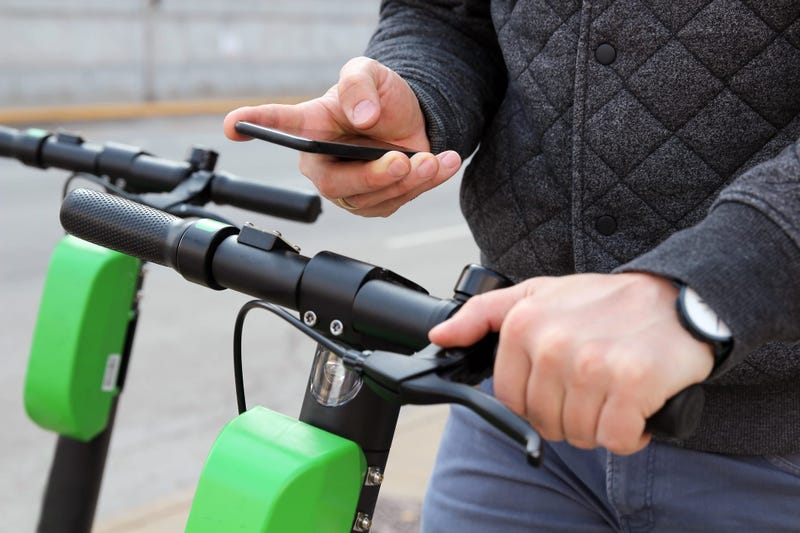
CHICAGO (WBBM NEWRADIO) -- The Chicago Department of Transportation and the Department of Business Affairs and Consumer Protection announced Thursday the participants in the city's 2020 Scooter Pilot program.
Led by CDOT and BACP, this year's scooter program will include three shared e-scooter companies: Bird, Lime, and Spin.
According to CDOT, the 2020 pilot will include 10,000 scooters across the city with 3,333 scooters per company. Scooters are limited to 15 mph, cannot be ridden on sidewalks, and may only be operated from 5 a.m. to 10 p.m. each day.
RELATED: City Council Weighs In On Phase 2 Of Scooter Pilot Program
The city received and evaluated four complete applications for the 2020 pilot and approved three companies to move forward. All 10 companies who received a permit in 2019 were eligible to apply to participate again this year. CDOT said the selected companies demonstrated in their applications the ability to meet Chicago’s strict operational, safety and equity guidelines for the four-month scooter pilot, which is expected to launch on Aug. 12.
“We have designed a new pilot program that expands on what we learned during last year’s pilot and will test the viability of scooters as a mobility option across Chicago’s neighborhoods this year,” said CDOT Commissioner Gia Biagi. "Particularly during this public health crisis, it's important that CDOT continues to pilot additional and innovative options for Chicagoans to get around.”
According to CDOT, new to the 2020 pilot, all e-scooters must be equipped with locking mechanisms that require riders to lock the device to a fixed object to end a trip. This new requirement aims to reduce dangerous sidewalk clutter and maintain clear pathways for Chicagoans who are visually-impaired and those with disabilities who depend on unobstructed sidewalks. This also means that scooters can be left out overnight, rather than being removed from the public way each evening. Examples of approved e-scooter locking locations include: bike racks and corrals, and street signs (not including bus stop signs).
Another key element of this years’ program is that scooters will be available throughout most of Chicago. All regions of the city except the lakefront trail, The 606, and Central Business District will be included in the pilot area. Special attention will be placed on equity priority areas that cover approximately 43 percent of the pilot area geography. At least 50 percent of each vendor’s devices must be deployed within these areas; the city will check for compliance twice per day. The equity priority area covers neighborhoods where residents face systemic disadvantages following generations of underinvestment and inequitable access to transportation and other resources. Vendors will provide the city with real-time data on operations, ridership, and safety, and the city may suspend or revoke the licenses of vendors that fail to adhere to the pilot’s terms.
“Chicago is dedicated to testing the viability of innovative mobility options that have the potential to improve transportation access across the City,” said BACP Commissioner Rosa Escareno. “Vendors will be held to the highest standards of accountability in how effectively they manage impacts on the public right-of-way and how they promote the safety of both scooter riders and other people who are in the right-of-way.”
The 2020 pilot is the second year of a two-year Emerging Business Permit issued by BACP last year. Once the pilot has been completed, city staff will evaluate the impact and success of the pilot, including using ridership data and feedback from both riders and non-riders, before making any determination regarding the long-term suitability of an e-scooter program within the city.
For more information on the scooter pilot, visit www.chicago.gov/scooters
